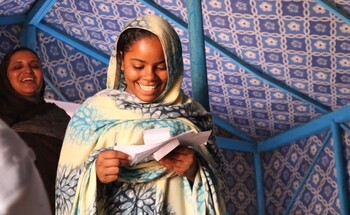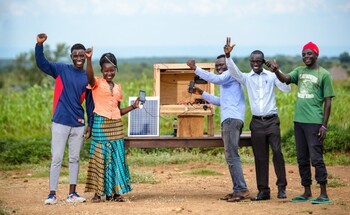Creating better perspectives for people forced to flee
Support to UNHCR in facilitating the operationalisation of the Global Compact on Refugees in the Humanitarian-Development-Peace Nexus
-
Commissioning Party
German Federal Ministry for Economic Cooperation and Development (BMZ)
-
Country
-
Lead executing agency
More
-
Overall term
2018 to 2025
-
Products and expertise
Security, reconstruction and peace

Context
In 2024, global forced displacement reaches 130 million, as reported by the United Nations Refugee Agency (UNHCR). Addressing the challenges of protecting, empowering, and providing perspectives to refugees stands as a paramount humanitarian and political task for the international community.
To support this effort, UN member states agreed in 2018 on the Global Compact on Refugees. This compact brings together governments, international organisations and civil society to improve refugee self-reliance, alleviate pressure on refugee hosting countries, and ensures vital support.
In response, the German Government initiated this global programme in partnership with the United Nations High Commissioner for Refugees (UNHCR), aiming to develop, test and implement new ways of supporting refugees. The programme, guided by a commitment to share the lessons learned with the international community, focuses on integrating humanitarian, development and peace-building perspectives. This approach is called the Humanitarian-Development-Peace (HDP)-Nexus.

Objective
Together with UNHCR, solutions to improve the support for refugees and host communities are developed, tested and implemented.
Approach
In cooperation with UNHCR, the programme provides long lasting solutions to refugees and host communities. In Mauritania, for example, it supports the national and local government in the socio-economic inclusion of refugees and host communities, improving their access to public services such as education and healthcare. The programme systematically collects, analyses, and shares lessons learned and best practices to inform other actors working on the HDP Nexus.
Beyond Mauritania, pilot projects are underway in the Sahel Region, Sub-Saharan Africa, Latin America, and South Asia.
The engagement focuses on four key thematic areas:
- Supporting the inclusion of forcibly displaced persons
- Promoting sustainable energy solutions
- Providing technical and staff support to UNHCR
- Enhancing the capabilities of host governments
Last update: January 2024





